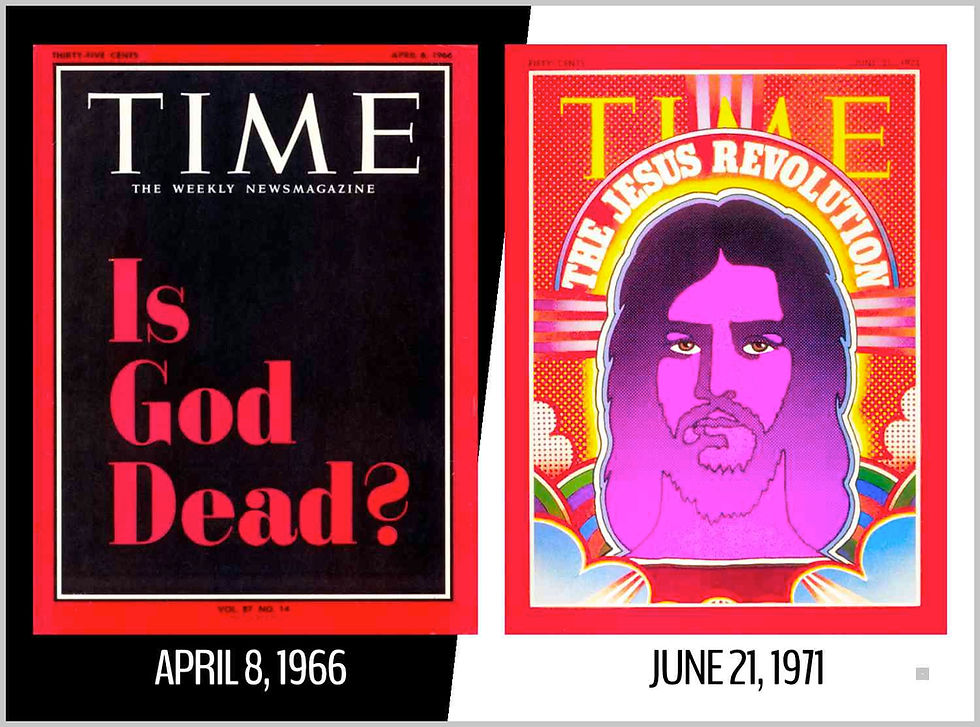The Encyclopedia of Trust
- Nov 4, 2025
- 3 min read

I am an unabashed fanboy of Wikipedia.
I even throw a little support money at it from time to time. It’s my go-to when I first want to know a little something about anything. If you want an insider’s story of Steve Jobs and peek into his psyche, read Issacson’s book. But if you want an overview and some basic facts, Wikipedia is your jam. Its mission is simple: to make the sum of all human knowledge freely available to every person in the world.
But full confession: I’m a fan of encyclopedias in general.
When I was a little boy, my mom would bring home a single volume of the Funk and Wagnalls Encyclopedia as they became available—one volume at a time—from the grocery store.
Yes, I know: it was a very different era.
When a new volume would arrive, say “Volume 17: Midd – Neut”, I would excitedly abscond to my room and begin reading from the beginning. No plot? No character-development? No story? Who cares?—it was just glorious information about everything.
Recently, Wikipedia founder Jimmy Wales released his first book, The Seven Rules of Trust: A Blueprint for Building Things That Last. In the opening, he describes how Wikipedia had to overcome early skepticism. After all, how could a crowd-sourced, crowd-edited encyclopedia possibly be reliable? To succeed, trust was essential.
After two decades, it’s clear that trust was earned. A headline in The Guardian declared, “In a hysterical world, Wikipedia is a ray of light.” The Washington Post called it “the good cop of the Internet,” and The Atlantic described it as “the last bastion of shared reality.”
Wikipedia has endured the test of time—and of researchers. Consider this: the venerable Encyclopaedia Britannica, with its multiple feet of bookshelf space, contains about 75,000 articles. By comparison, Wikipedia holds over seven million—and all in your smartphone. On any given day, it receives roughly 350 million page views, not even counting the 300+ non-English editions.
And all without a single ad. Or subscription fee. Just recently, The Guardian headlined an article: Is Wikipedia's Jimmy Wales the Last Decent Tech Baron?
In his book, Wales draws on a framework of trust from Frances Frei, professor at Harvard Business School:

“‘Every single time trust exists, these three things are there,’ Frei told me when we spoke in 2024. ‘And every single time it’s broken, I can trace it back to one of these three.’”
Authenticity is simply about “honesty, integrity, or character,” while Empathy is “how you feel about others”. He boils Logic down to “competence” or “capability.”
I like that schema.
At the Elemental Group, one of the four critical components we measure in organizations is Integrity—and within that, we explore how crucial trust is for a leader. The loss of trust doesn’t just derail an organization from its mission; it also cripples creativity and innovation, undermining another of our four elements: Imagination, the capacity to change.
So here’s the question: What level of trust do you think your church, nonprofit, or organization holds with its followers? Can you see it reflected in their level of commitment and ownership? Do they not only trust you as their leader, but the organization as well?
Lose their trust… and your shelf life is short.
Dave Workman | The Elemental Group
The Elemental Group’s Church Scholarship Initiative is designed for churches that want to impact their communities but lack the resources because of context or circumstances. The six-month Pathway program is a comprehensive development and coaching program for church leadership teams. Our generous Kingdom-minded donors have made it possible for under-resourced churches to receive proven help at a minimal cost. Click here for more info.




Comments